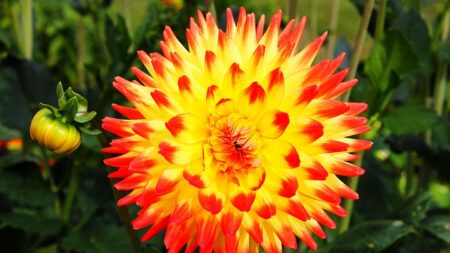Many of us hold on to our beliefs about the way things should be even when doing this makes us feel worse. Thoughts arise in our minds justifying our position. I recently watched a movie that brought this home to me. The main character, Jordan, was developing a relationship with a divorced woman whom he really liked. Then he discovers that she is still occasionally seeing her ex-husband. Even though the man’s relationship with her is just beginning, he feels betrayed and he breaks things off, telling himself that he could never be with someone who does this. He then ruminates about how bad his situation is, despite another friend pointing out to him that it was his decision to break things off, and that it is his choice whether to continue to feel slighted and miserable, or to let go of his belief that he could never have a relationship with a woman who continues to see her ex and maybe be happier. The friend tell him “It takes courage to be happy”. Ultimately Jordan recognizes that it is his fear of heartbreak, of being hurt again, that prevents him from pursuing the relationship. He decides to summon the courage to give it another try, rather than deciding it was over before it had even really gotten started. “It takes courage to be happy”. I think this often describes situations we find ourselves in like the one in the movie. Our beliefs about the way things should be affect the ways we see our situations and we can easily get caught up in justifying our reactions
Mindfulness-Based Habit Change is a six-week, 90-minute Zoom course that combines mindfulness practices with the neuroscience behind how habits are formed and how to change the unwanted ones. Registration is…
These investigators studied the effect of short, practical meditation practices on emotion and cognitive functioning in meditation-naive participants. They randomized subjects (aged 18-45) who were non-experienced meditators to either 13-minute…
Summer is here, which can often be a good time to practice mindfulness. There may be more time to practice formally by meditating regularly. With meditation practice we often say that more is better, and it is also important to remember that any practice is better than none. This can apply to even a few minutes a day, perhaps pausing before getting out of bed in the morning to do a short body scan or attention-focused meditation, noticing breathing, sounds or other sensations arising from the body. If more time is available, there is good evidence that meditating for 15 minutes a day can have positive effects on stress and emotion regulation. The evidence for benefits increases further with longer periods of meditation. In addition to practicing formal meditation, summer offers many opportunities to practice mindfulness in everyday life. Many people take vacations during the summer and, if so, we may notice the anticipation that arises when thinking about returning to a favorite location, or traveling to a new destination. Some of the anticipation may be positive, related to old memories or excitement about going somewhere new.
Mindfulness-Based Habit Change Class to be Offered this Fall Mindfulness-Based Habit Change is a six-week, 90-minute Zoom course that combines mindfulness practices with the neuroscience behind how habits are formed and…
Efficacy of a Mindfulness and Compassion-Based Intervention in Psychotherapists Mindfulness and compassion-based interventions (MCBI) have been shown to positively influence psychotherapy skills and have the potential to improve therapists’ relationships…


